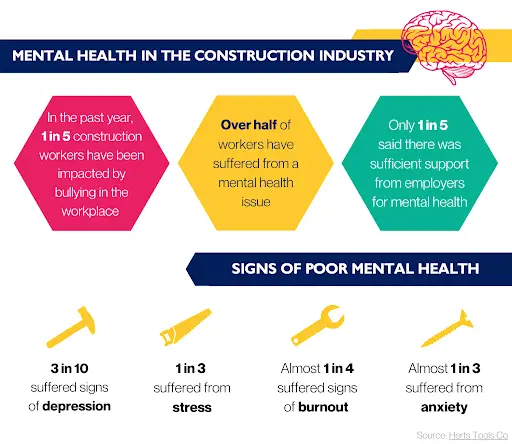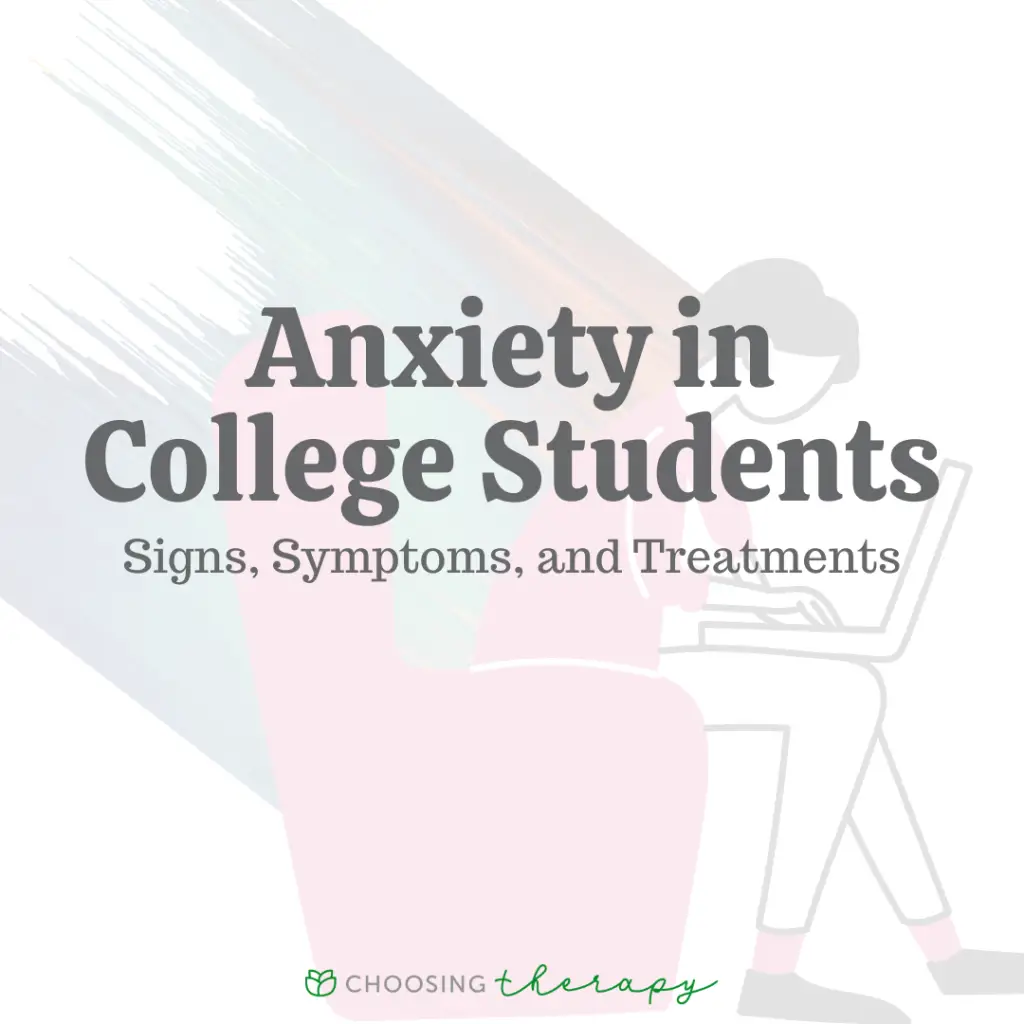In this article, you will learn about the impact of anxiety on millennials. We will explore how anxiety affects various aspects of their lives, including their mental health, relationships, and productivity. Additionally, we will discuss some common causes of anxiety in this generation and offer tips on managing and reducing anxiety levels. By the end of this article, you will have a better understanding of the challenges millennials face when it comes to anxiety and how they can navigate through it.

This image is property of www.buzzback.com.
Understanding Anxiety
Anxiety is a common mental health condition that affects millions of individuals worldwide, including millennials. It is important to have a clear understanding of what anxiety is and the various types of anxiety disorders in order to fully comprehend its impact on this particular generation.
Definition of Anxiety
Anxiety can be described as a persistent feeling of fear, worry, or unease. It is more than just feeling stressed or nervous in certain situations; instead, it is a constant state of apprehension that can interfere with daily life. Anxiety can manifest in various ways, such as physical symptoms (e.g., racing heartbeat, sweating) and mental symptoms (e.g., racing thoughts, difficulty concentrating).
Types of Anxiety Disorders
There are several different types of anxiety disorders that millennials may experience. These include:
-
Generalized Anxiety Disorder (GAD): This is characterized by excessive worry and anxiety about various aspects of life, such as work, relationships, and health. Individuals with GAD often find it difficult to control their worry and may experience physical symptoms, such as muscle tension and insomnia.
-
Social Anxiety Disorder: Social anxiety disorder is characterized by an intense fear of social situations. Millennials with this disorder may feel extremely self-conscious in social settings and may avoid them altogether, leading to feelings of isolation and loneliness.
-
Panic Disorder: Panic disorder is characterized by sudden and intense panic attacks, which are accompanied by physical symptoms such as chest pain, shortness of breath, and dizziness. These attacks can be unpredictable and can greatly impact a millennial’s daily life.
-
Obsessive-Compulsive Disorder (OCD): OCD is characterized by intrusive thoughts, obsessions, and compulsive behaviors. Millennials with OCD may experience intrusive thoughts that are distressing and engage in rituals or behaviors to alleviate anxiety.
-
Post-Traumatic Stress Disorder (PTSD): PTSD is a type of anxiety disorder that occurs after experiencing a traumatic event. Symptoms of PTSD may include flashbacks, nightmares, and hypervigilance.
Prevalence of Anxiety among Millennials
Anxiety is not limited to any specific generation, but millennials are disproportionately affected by it. The pressures and challenges faced by this generation have contributed to increased rates of anxiety among millennials.
Statistics on Anxiety in Millennials
According to the Anxiety and Depression Association of America, anxiety disorders are the most common mental illnesses in the United States, affecting around 40 million adults aged 18 and older. Additionally, a study conducted by the American Psychological Association found that millennials are the most stressed generation, with anxiety levels far exceeding those of previous generations.
Factors Contributing to Anxiety in Millennials
There are several factors contributing to the high rates of anxiety among millennials. One major factor is the uncertain economic climate they face. Many millennials entered the workforce during the aftermath of the 2008 financial crisis, which led to a lack of job security and a highly competitive job market. The pressure to succeed financially and establish stable careers can be overwhelming for many millennials, resulting in anxiety.
Furthermore, the rise of social media has had a profound impact on this generation. Millennials are constantly bombarded with carefully curated images and posts that depict a seemingly perfect life. This constant comparison and fear of missing out (FOMO) can lead to feelings of inadequacy and contribute to anxiety.

This image is property of petris.org.
Effects of Anxiety on Millennials’ Mental Health
Anxiety can have a significant impact on the mental health of millennials, affecting various aspects of their lives.
Increased Stress Levels
One of the most immediate effects of anxiety is an increase in stress levels. Millennials with anxiety may constantly feel on edge and overwhelmed, making it difficult for them to relax and unwind. This chronic stress can negatively impact their overall well-being and lead to burnout.
Impact on Work and Productivity
Anxiety can greatly affect millennials in their professional lives. The constant worry and fear of making mistakes can hinder their ability to perform at their best. This can result in decreased productivity, missed opportunities, and even job loss.
Relationship Problems
Anxiety can also take a toll on millennials’ relationships, both romantic and platonic. The constant need for reassurance and the fear of rejection or abandonment can strain relationships and negatively affect their quality. Additionally, social anxiety may make it difficult for millennials to make new friends or maintain existing friendships, leading to feelings of isolation.
Effects of Anxiety on Millennials’ Physical Health
Anxiety not only affects mental health, but it can also have significant physical consequences for millennials.
Sleep Issues
Many millennials with anxiety struggle with sleep issues. Falling asleep and staying asleep can be challenging due to racing thoughts and worry. This lack of quality sleep can result in daytime fatigue, difficulty concentrating, and impaired cognitive function.
Digestive Problems
Anxiety can manifest in physical symptoms, including digestive issues. Millennials with anxiety may experience frequent stomachaches, nausea, and diarrhea. These gastrointestinal symptoms can exacerbate anxiety and create a vicious cycle of physical and mental distress.
Weakened Immune System
Long-term anxiety can weaken the immune system, leaving millennials more susceptible to illnesses and infections. This can lead to frequent colds, increased sick days from work or school, and further exacerbation of anxiety.

This image is property of www.ualberta.ca.
Impact of Anxiety on Millennials’ Education
Anxiety can significantly impact millennials’ educational experiences, affecting both their academic performance and decision-making abilities.
Academic Performance
Anxiety can hinder millennials’ academic performance by impairing their ability to concentrate and retain information. The constant worry and fear of failure can make it difficult for them to focus on their studies and perform at their full potential. This can lead to decreased grades and a sense of frustration and disappointment.
Difficulties in Decision Making
Millennials with anxiety often struggle with decision-making. The fear of making the wrong choice and the desire for perfection can paralyze them, leading to indecision and missed opportunities. This can create a cycle of anxiety, as the fear of making the wrong decision only increases over time.
Anxiety in Social and Professional Settings
Anxiety can make social and professional settings particularly challenging for millennials, impacting their overall well-being and success.
Social Anxiety
Social anxiety can greatly impact millennials’ ability to engage in social settings. The fear of embarrassment or judgment can lead to avoidance of social situations or a constant state of anxiety during social interactions. This can hinder their ability to connect with others and form meaningful relationships.
Impostor Syndrome
Impostor syndrome is another common manifestation of anxiety among millennials. Many individuals in this generation experience feelings of inadequacy, despite their accomplishments and qualifications. They may believe that they are not worthy of their success and constantly fear being exposed as a fraud. This can lead to self-doubt and negatively impact their professional growth.
Fear of Failure
Millennials with anxiety often have a heightened fear of failure. The pressure to succeed and the fear of disappointing themselves or others can be overwhelming. This fear can prevent them from taking risks and pursuing opportunities, ultimately hindering personal and professional growth.

This image is property of nypost.com.
Coping Mechanisms for Millennials with Anxiety
While anxiety may seem daunting, there are various coping mechanisms and strategies that can help millennials manage their anxiety effectively.
Professional Help and Therapy
Seeking professional help, such as therapy or counseling, can be an essential step in managing anxiety. Therapists can provide support, guidance, and evidence-based techniques to help millennials develop coping skills and address underlying issues contributing to their anxiety. Techniques such as cognitive-behavioral therapy (CBT) have been proven effective in managing anxiety disorders.
Self-Care Practices
Engaging in self-care practices can also greatly benefit millennials with anxiety. This can include activities such as exercising regularly, practicing relaxation techniques (e.g., deep breathing, progressive muscle relaxation), and maintaining a healthy lifestyle. Taking time for oneself and engaging in activities that promote relaxation and stress reduction can help manage anxiety symptoms.
Mindfulness and Meditation
Incorporating mindfulness and meditation into daily routines can also be beneficial for millennials with anxiety. Mindfulness involves being fully present in the moment, without judgment or attachment to thoughts or emotions. Meditation practices, such as guided meditation or mindfulness-based stress reduction (MBSR), can help reduce anxiety and promote a sense of calm and well-being.
Support Systems for Millennials with Anxiety
Support from loved ones and a supportive environment can play a crucial role in managing anxiety among millennials.
Importance of Emotional Support
Emotional support from family, friends, and peers is essential for millennials with anxiety. Having a strong support system can provide a sense of comfort, understanding, and validation. Simply having someone to talk to and lean on during difficult times can greatly alleviate anxiety.
Role of Family and Friends
Family and friends can also play an active role in supporting millennials with anxiety. This can involve offering a listening ear, providing encouragement, and helping them access the necessary resources, such as therapy or support groups. Educating themselves about anxiety and its impact can also help loved ones better understand and support their millennial counterparts.
Supportive Workplace Environments
Employers can contribute to the well-being of millennials with anxiety by fostering a supportive workplace environment. This can include promoting work-life balance, providing resources for mental health support, and implementing policies that address stress and anxiety in the workplace. Encouraging open communication and reducing stigma surrounding mental health can create a safe and inclusive environment for individuals with anxiety.

This image is property of Amazon.com.
Overcoming Anxiety: Success Stories of Millennials
While anxiety may initially seem overwhelming, many millennials have successfully managed their anxiety and achieved personal growth.
Personal Growth and Resilience
Millennials who have overcome anxiety often describe their journey as one of personal growth and resilience. They have learned to recognize their triggers, develop healthy coping mechanisms, and prioritize self-care. Through therapy, self-reflection, and support from loved ones, they have been able to regain control over their lives and pursue their goals.
Tools and Strategies for Overcoming Anxiety
Successful millennials with anxiety have found a variety of tools and strategies that work for them. These can include journaling, practicing gratitude, setting realistic goals, and maintaining a healthy work-life balance. They have also embraced the importance of self-acceptance and self-compassion, understanding that anxiety does not define them as individuals.
Conclusion
Understanding the impact of anxiety on millennials is crucial for creating a supportive and inclusive society. Anxiety can significantly affect millennials’ mental and physical health, education, and overall well-being. By raising awareness about anxiety, providing support systems, and promoting self-care practices, we can help millennials effectively manage their anxiety and thrive in all areas of life. It is essential to prioritize mental health and create an environment that fosters understanding, empathy, and acceptance.


